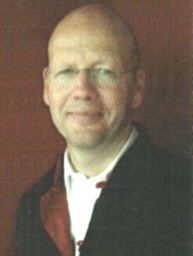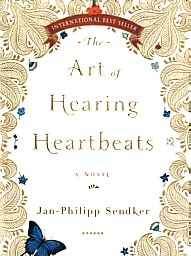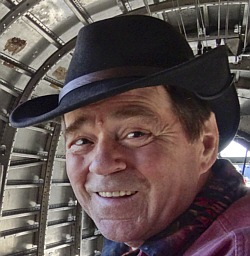We meet Tin Win as his mother gives birth to him, and when Tin Win is six years old his
father is killed in an accident. Then his mother leaves Tin Win telling to wait for her, and never
returns. Tin Win waits, never moving from the spot, sitting where he could see his mother
approaching from a distance, but a week went by and he was still sitting in the same spot and
nearly dead when a neighbor lady found him and nursed him back to health. Later Tin Win loses
his sight. Life continues to deal him a harsh hand, and he manages to thrive in spite of it. As Julie listens, she
cannot believe this is her father's story and thinks U Ba is making this up. "Where's your
evidence? If at any time in his life my father had been blind, don't you think that we, his family,
would have heard about it? He would have told us." (Page 88) U Ba asks if she's certain and she
knows she is not.
Tin Win became blind and could only distinguish light from dark. Then one day he was
walking
when he heard an unusual sound, a light thumping sound, and stopped in his tracks, asking if
anyone were there. A voice came to him from the ground. It was Mi Mi. Upon closer approach to
Mi Mi he discovered it was the sound of her heart beat that he had been hearing. When Mi Mi left,
Tin Win discovered that she was crawling on all fours. A boy who couldn't see had met a girl who
couldn't walk.One day they were together and Tin Win heard a light drumming and with Mi Mi’s help he discovered he was hearing the sound of an unhatched chick’s heart beating. Soon they became constant companions, she became Tin Win’s eyes and he became Mi Mi’s feet and legs, carrying her to places she had never been, could never go but for him. She began to feel something she had never before felt in her life, that she was needed.
[page 85] Tirelessly he carried her through the village and across the fields,
up the mountains and back down again. He carried her in the scorching
midday heat and in the most torrential downpours. On his back, in his
company, the limits of her small world evaporated. They roamed and roamed,
making up for all those years when her horizon had been the garden fence.
During the monsoon months, on days that threatened to sink them into
the mud, they'd stay in the monastery and take refuge in Tin Win's books. His
fingers flew over the pages, and now it was his turn to conjure images before
her eyes. He read aloud, she lay beside him and surrendered to his voice,
irresistible as it was. She toured with Tin Win from one continent to the next.
She, who on her own feet would not have made it to the next village, circled
the globe. He carried her up the gangways of ocean liners, from one deck to
the next, all the way to the captain's bridge. On arrival in the ports of
Colombo, Calcutta, Port Said, or Marseilles it rained confetti and the ship's
band played. He carried her through Hyde park, and they turned heads in
Piccadilly Circus. In New York they were nearly struck by a car, Tin Win
insisted, because Mi Mi was always looking up instead of concentrating on the
traffic and on guiding him through the canyon-like streets. She was no
burden. She was needed.
Julie doubts her father's love for her because he left her. U Ba rebuffs her doubt saying, "Love
has so many different faces that our imagination is not prepared to see them all." "Why?" Julie
asks, and he answers:
[page 243] "Because we see only what we already know. We project our own
capacities — for good as well as evil — onto the other person. Then we
acknowledge as love primarily those things that correspond to our own image
thereof. We wish to be loved as we ourselves would love. Any other way makes
us uncomfortable. We respond with doubt and suspicion. We misinterpret the
signs. We do not understand the language. We accuse. We assert that the
other person does not love us. But perhaps he merely loves us in some
idiosyncratic way that we fail to recognize."
You never know until you find out(2). One cannot expect to know all the answers; a good
question is worth more than a hundred answers. Holding an unanswered question is often the only
way one can arrive at the knowing which otherwise seems so elusive. The answer will come in its
own time, but only if we hold the unanswered question. Julie's unanswered questions kept her
listening to U Ba. She said to herself that she didn't understand him, but she trusted him.
Win Tin's rich uncle sent for him to come to Rangoon. He had to say goodbye to Mi Mi and
it nearly broke his heart and hers. But he left and an operation removed his cataracts and allowed
him to see. But he never lost his ability to hear heartbeats. As he walked from the English to the
Chinese to the Indian quarters of the large city, he saw, smelled, and bumped into all kinds of
people, and listened to their hearts."Hearts sound different from person to person, betraying age
or youth, joy, sorrow, fear, or courage, but that was all." (Page 268) He discovered that hearts betray
no nationalities, no boundaries, no ethnic differences.
Julie Win listens to U Ba's story, not knowing what to expect. If her father could see again, he could have gone to the university, could have become a famous lawyer, and could have given birth to her, but what could have possessed him to suddenly leave her at four years old and return to Burma? And how could U Ba have known all of this story? We will never know until we find out, and when we finally receive that knowledge, we will
be sad, not for Julie, but for ourselves because the wonderful story of Mi Mi and Win Tin will have
drawn to a close, just like the bedtime story of the Prince, the Princess, and the Crocodile that her
father told her almost every night, the one her mother didn't like because it didn't have a happy
ending, but her father knew that it did. We can side with the father if we wish, as Julie will
undoubtedly do, when U Ba's story of Tin Win and Mi Mi disappears like intertwined curls of smoke rising into the sky.
~^~
---------------------------- Footnotes -----------------------------------------
Footnote 1.
My poem, On the Wings of Words, expresses exactly this sentiment, that thoughts can take wings and fly into another person
on the wings of words.





